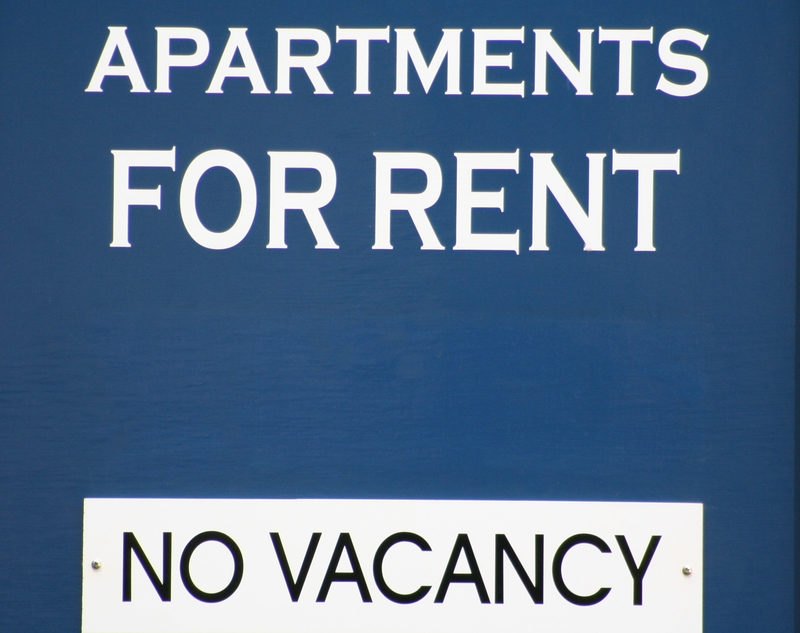Toronto’s Vacant Home Tax

As of 2022 Torontonians need to pay to keep their homes vacant, whether by choice or not! That’s right, the City of Toronto added Chapter 778, Taxation, Vacant Home Tax, to the City of Toronto Municipal Code.
Beginning January 1st, 2022, if a dwelling unit in Toronto, being a self-contained residential unit that includes at least a washroom and kitchen, is not one of the Principal Residences of any of the:
- registered legal owners,
- a tenant, or
- any individual (e.g. family of the legal registered owner or tenant),
or is not occupied for residential purposes by:
- a tenant,
- a registered legal owner,
- any other individual (e.g. family of the legal registered owner or tenant), or
- by any combination of the forgoing,
for at least six months of a calendar year (defined as a “Vacant Unit”), a one percent (1%) tax will be assessed on the assessment roll value (the MPAC value i.e. the same value that is used to assess your property taxes) that is current as of May 1st of the following year (defined as the “Payment Date”), which is also the date that payment is due (i.e. “The Vacant Home Tax”). Late payments will incur interest at fifteen percent (15%) per annum, calculated and payable monthly at 1.5%. Unfortunately, even if under appeal or complaint the Vacant Home Tax remains payable as of the Payment Date and interest will continue to accrue. If you overpay, you only have two (2) years from the Payment Date to claim it back by way of an application. Which means, you could be out of time if reassessed after two years by the City. Finally, the City of Toronto will add any unpaid Vacant Home Tax to your property tax bill upon default of payment (i.e. not paying on time). Which means, unpaid Vacant Home Taxes run with the land, and become the problem of every future Owner until paid. It also means that unpaid Vacant Home Taxes will take priority over any mortgages registered against the Residential Unit, which will most likely push the borrower offside and in default of their mortgage. Finally, as with all severely delinquent property taxes, the City of Toronto could force the sale of the Residential Unit and use the help of bailiffs to collect.
However, all such Residential Units are deemed vacant by the City of Toronto until a registered legal owner of the property files their declaration by the 2nd day of February of the following year. Failure to do so is irreversible by a complaint or appeal and the Vacant Home Tax is assessed and payable. The declaration provides a registered legal owner of a Residential Unit (defined as an “Owner”) the opportunity to inform the City of Toronto that it was not a Vacant Unit; and if it was, that an exemption applies. The City of Toronto has prepared an online website to submit the declaration by way of a series of simple questions to click through, which can be found here. The City of Toronto can assess or reassess up to three (3) years from the Payment Date, unless the City discovers that an Owner lied (intentionally or unintentionally) or was fraudulent. The City of Toronto’s assessments will not be invalidated by any error on their part. Furthermore, the City of Toronto can send inspectors to the Residential Unit to investigate the property and the occupants, as well as use its auditors to examine books and records with regards to same. Books and records include:
- Vehicle registration and insurance documentation,
- Government issued personal identification such as a driver’s license,
- Health card and coverage,
- Income tax returns, notices and assessments,
- Lease agreements,
- Estate information such as Wills, Probate applications of certificates of appointment of estate trustee,
- Employment agreements, paystubs, employment records,
- Hospital stay information, and information from long term care and supportive care facilities,
- Court orders prohibiting occupation or rental,
- Homeowners insurance or tenants insurance.
In some cases the City of Toronto can convict an Owner or anyone who participated with the Owner in misrepresenting, lying, interfering, concealing, forging, or acting fraudulently, of an offence which carries a fine of at least $250 up to $10,000 each.
To clarify, the Taxation Year is the calendar year before February 2nd of the year you must submit your declaration for. The Taxation Year is the year you report on and will be assessed for Vacant Tax.
The City of Toronto recognizes that there are circumstances beyond our control (other than not finding a tenant), and have therefore granted a few exemptions as follows:
- An Owner has died in the Taxation Year or the year before,
- The Vacant Unit is under construction such as renovations or repairs where:
- occupying the Residential Unit is prevented by the work being done for at least six (6) months,
- all the required permits for the work have been issued, and
- the City of Toronto’s building department has no reason to believe that the work is being continuously carried out with out any undue delay.
- If a Vacant Unit is the principal residence of an occupant (i.e. an Owner, tenant, or any other individual), and the occupant is hospitalized or required to be in a long term or supportive care facility for at least six (6) months of the Taxation Year,
- The Vacant Unit was sold or otherwise, and legal ownership was transferred to a third party through an arm’s length transaction in the Taxation Year,
- The Vacant Unit is required for employment purposes for at least six (6) months and where the Owner ordinarily lives in a Principal Residence outside of the Greater Toronto Area, or
- As a result of a court order, no one can occupy the Residential Unit for at least six (6) months of the Taxation year.
When selling a Residential Unit there are certain implications and requirements of the Seller, Buyer and their respective real estate lawyers as follows:
- Buyers and Sellers are required to make the appropriate arrangements to ensure that the declaration has been filed,
- Buyers should note that the Vacant Home Tax will form a lien on the property (like property taxes), and any unpaid taxes will become the Buyer’s responsibility,
- If a closing occurs between January 1st and February 2nd, inclusive, the Seller must complete the declaration to the City of Toronto prior to the closing. Only the Seller will know the occupancy history for the prior year (i.e. the Taxation Year),
- If a closing occurs on or after February 3rd but on or before December 31st of the same calendar year, the Buyer shall be responsible for submitting the declaration in the following year. However, should the Buyer not occupy the Residential Unit for at least six (6) months of that calendar year, the Buyer will qualify for the “transfer of legal ownership” exemption mentioned above,
- Sellers should provide a copy of the completed and filed property status declaration to the Buyer, and
- Sellers should provide a statutory declaration at closing confirming the filed property status declaration is true and correct.
Navigating through all the recent changes in law and policies that affect real estate is complicated and certainly should be done with the help of a real estate lawyer from Levy Zavet PC. Feel free to contact us with any questions you may have.
Read More: Property Tax in Ontario: A Primer


